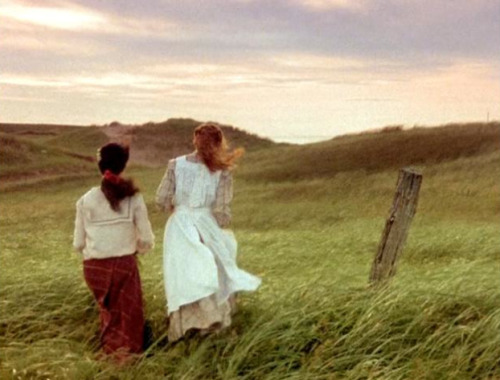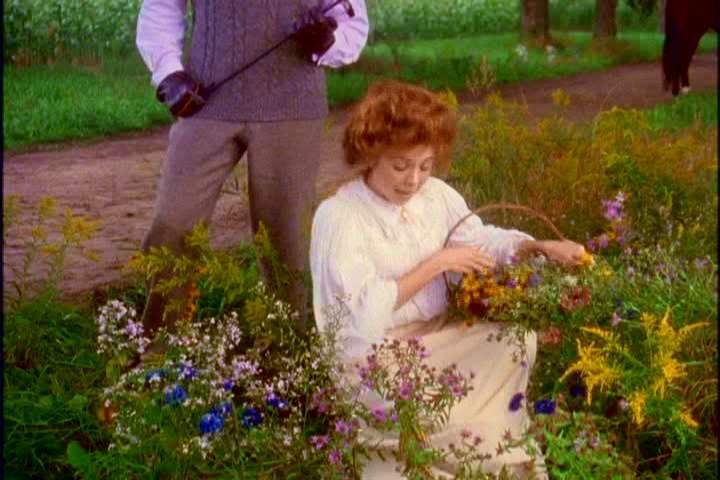I apologize for not having posted lately, but things have been rather crazy around here. My husband is convinced that I cannot live without a major life change every six months or so. I blame my father. Our last big change was getting a dog in April (and, BOY, was that an adjustment!), so it would seem that we’re due. We decided to pull Katie out of kindergarten at the end of October and begin homeschooling. Every single person I’ve told has asked, “WHY?? What happened?” The answer: Nothing. Nothing in particular happened. But we certainly do have some reasons behind our decision.
The Whys: 2. I felt I had very little time to spend with my daughter. The first hour of the day was spent getting ready for school. After she got home, we did homework, and then I needed to begin preparing dinner. We then ate dinner, cleaned up, got ready for bed, and read if there was any time left before her 8:00 bedtime. This time is truncated even more when we have dance class. Aaron and I missed her, and so did her siblings. 3. Children in school are often so busy being students that they no longer have time to be kids. Reading is extremely important to me, but I often found myself skipping reading time in order to give her more time to just play and be outside. I really disliked have to choose between two things I valued so highly. 4. I strongly disliked both the reading program and the math program they have at Katie's school (and throughout the school district). Because she's so far ahead, that time in school is wasted. She'll come home and tell us that she "learned the letter U today." I had to resist rolling my eyes, because not only did she have her letters learned years ago, but she began reading at four. 5. We also felt as though she was picking up a lot of negative habits from her peers. Phrases that had never been heard in our home started popping up. She began being extremely critical of Paul, when they had been glued at the hip before. She also started being much more sassy and beligerant. We’ve noticed a dramatic falling off in the sassiness since she’s been away from school, so I do believe that much of it can be attributed to her time in school, and not just the age, as some have suggested.
6. So many important subjects are overlooked in the public schooling system because teachers have to teach to tests. Arts, languages, and nature appreciation are given short shrift (if they are taught at all). I think that these are essential to becoming a well-rounded person, and I wanted to be able to devote more time to them. 7. Much more can be accomplished when there’s a 1:3 ratio than a 1:20 (or 1:10, when both the EA and the teacher were working with the kids). I knew that we could cover more in a much shorter period of time because of the increased attention on her needs and abilities. 8. The following quote made me sit up and take notice: If we continue to send our children to Caesar for their education, we need to stop being surprised when they come home as Romans. ~ Dr. Voddie Baucham After a month of school, I started thinking that we needed to explore our options. I considered charter schools and nixed that idea because of long commute times (meaning even more time would be spent away from home) and because they don't solve many of my concerns. I began researching homeschooling methods, thinking that perhaps there was a better system out there. I stumbled across the Charlotte Mason method of education, and I was convinced.
Here's a brief summary that illustrates seven characteristics of a Charlotte Mason education, as found at Simple Homeschool: 1. Habits Charlotte believed that the development of good habits within a child provides the foundation for early education. She wrote, “The mother who takes pains to endow her children with good habits secures for herself smooth and easy days.” For this reason Charlotte advised delaying formal academics until age six, instead advocating play and work within the gentle boundaries of the family unit. (Because Katie has already begun formal schooling, we will continue that, but will likely not start our other children in formal lessons until six.) Charlotte saw good habits as so crucial that she recommended putting all else aside if a bad habit appeared, and working with the child (in a friendly way) to reconcile the issue before it could develop further. 2. Style of Lessons Charlotte Mason style lessons are short, especially for young children. The goal is to train the child to focus fully on their work, but only for the amount of time they are developmentally capable of. For early elementary-aged children this often means only 5-15 minutes per subject. In older grades the duration extends to 45 minutes or more. When a child becomes restless, Charlotte advised changing the lesson to a different type of subject–maybe moving from handwriting to music study, or from math to handicrafts.Short lessons means that more subjects can be incorporated into a school day. This fits with the Charlotte Mason philosophy of introducing many topics to children and allowing them to delve deeper into the ones that spark their interest. 3. Living Books
Living books are the opposite of textbooks—quality literature (either fiction or non-fiction) written by an author with a passion for the topic. The writer’s passion and expertise breathes life into the book, as opposed to a textbook that gives impersonal overviews of many topics. Living books present inspiring stories that engage the minds of children and adults alike, providing characters our children can look up to and emulate. 4. Narration A Charlotte Mason-style education uses narration as one of the central methods to evaluate a student. The goal is to teach a child to think and express themselves clearly. Up until the age of 10 or 11, Charlotte advises teachers to use mainly oral narration with a child. After listening to a short passage of a book, the child will tell back, in his or her own words, important aspects of the story. Letting a young child do this orally helps them develop analytical thinking skills without getting stuck by the physical mechanics of handwriting. At around age 11 Charlotte Mason teachers begin having children do written narrations, which lengthen and become more in depth as children get older. 5. Dictation Dictation exercises introduce and reinforce spelling and grammar concepts. Charlotte recommends using inspiring quotations or Scripture for dictation. The child studies the passage until they are certain of the spelling and punctuation. Then the teacher dictates the passage slowly while the child writes it down. Formal grammar study is usually delayed until age 10 or 11 in a Charlotte Mason education. 6. Art & Music Study Charlotte Mason believed in exposing a child to greatness in many forms, which is why she introduced music and art appreciation at her schools. In Charlotte’s schools, one composer or artist was studied each term–both through experiencing the music and art, reading living books about the artist, and perhaps reproducing the style through art or music lessons. 7. Nature Study
Charlotte thought children should spend as much time as possible outdoors, especially as young students. Students kept their own detailed nature journals and also used nature guides to discover and identify the natural world in their neighborhood. If you know me well, you could understand why this education style would appeal to me. I love the concept of using "living books" instead of textbooks. There's also an emphasis placed on memory work (memorizing scriptures and poetry) which I believe is a lost skill. I also love how much importance is placed on being out of doors. I think that it's becoming more and more clear how much we've lost by our very sedentary lifestyle in America. We will be using the curriculum provided by Ambleside Online, and our days will look something like this: Every day (except Friday): Mondays: Tuesdays: Wednesdays: Thursdays: Fridays: Whew! Because of the very brief lessons (10-15 minutes), we should be able to cover a great deal in a short amount of time. This will (ideally!) give us time to have a daily walk, lots of outdoor play, and plenty of unstructured time. (Although, I have to note that today is one of the first days where we’ve actually accomplished EVERYTHING I planned on doing. Better to be over- than underambitious, right?)
We’ve really enjoyed homeschooling so far. We’ve been to see “The Nutcracker,” which Katie loved. We’ve sewn cards for grandparents, made autumn decorations, played games, and spent lots of time cuddling and reading together. The other day we read Gingerbread Friends by Jan Brett, and it included a recipe for gingerbread. Normally I would have thought, “That’s fun. We should do that sometime.” Instead, we got up right then and made gingerbread. I love having a plan, but I also love that homeschooling allows for spontaneity. I love the following quote by Charlotte Mason, and I would really like it to be a guiding principle in our homeschooling: “The question is not,—how much does the youth know? when he has finished his education—but how much does he care? And about how many orders of things does he care? In fact, how large is the room in which he finds his feet set? And, therefore, how full is the life he has before him?” |
Monday, December 6, 2010
Charlotte Mason Education
Posted by
Chelsey
at
2:41 PM
![]()
Labels: Homeschooling
Subscribe to:
Post Comments (Atom)






7 comments:
Chelsey you are amazing! I have no doubt this is the best plan for Katie. You are such a wonderful mother!
Ummm yeah that does sound amazing! I don't think I could pull it off like you though, but it sounds wonderful! I wonder what next year will bring for us... I'm nervous...
Just reading that makes want to homeschool too!! Or at least come over and read books and eat gingerbread.
I am so glad you have found what works best for your little one. If anyone can pull it of it is you! She's lucky to have you as a mom. Now my kids, on the other hand may hate me by the end of the first week....
Good for you and better for Katie. I have always admire those who can do it. I wish I could.
Excellent use of Anne of Green Gables pictures! We need to watch that movie when we get together. And you are amazing! I love how thoroughly you research everything. One day I hope to be as dedicated as you. I can't wait to see you, Aaron, and the kids in a couple of weeks!!!
Will you teach Lily too when the time comes? Or maybe I can just copy you? This sounds like a great plan. I went to a Montessori school for a couple of years and it sounds like both women (Charlotte Mason and Maria Montessori) shared some similar ideas. Neat.
Post a Comment